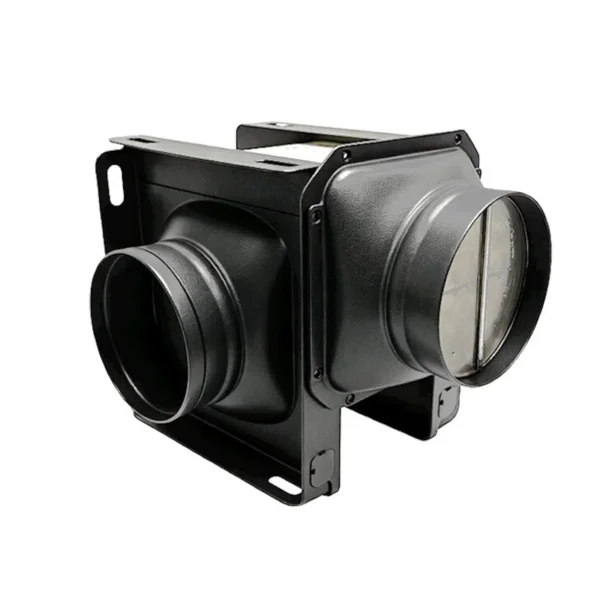
The Ultimate Guide to Choosing the Best Air Ventilation Fan for Your Space
Proper ventilation is essential for maintaining healthy indoor air quality, preventing moisture buildup, and ensuring comfort in both residential and commercial spaces. An air ventilation fan plays a crucial role in circulating fresh air while removing pollutants, odors, and excess humidity.
In this comprehensive guide, we’ll explore:
✔ Types of air ventilation fans
✔ Key features to consider before buying
✔ Top-rated models for different needs
✔ Installation and maintenance tips
Why Do You Need an Air Ventilation Fan?
Indoor air can be 2-5 times more polluted than outdoor air (EPA). A high-quality ventilation fan helps:
✅ Remove contaminants – Eliminates cooking fumes, smoke, VOCs, and allergens
✅ Control humidity – Reduces mold and mildew growth
✅ Improve air circulation – Prevents stale air and odors
✅ Enhance energy efficiency – Modern fans consume less power while providing better airflow
Types of Air Ventilation Fans
1. Ceiling-Mounted Exhaust Fans
Best for: Bathrooms, kitchens, laundry rooms
✔ Quiet operation (as low as 0.3 sones)
✔ Integrated lighting options
✔ Energy Star-rated models available
2. Window Ventilation Fans
Best for: Bedrooms, living rooms, garages
✔ Easy to install
✔ Reversible airflow (intake or exhaust)
✔ Affordable and portable
3. Whole-House Ventilation Systems (HRV/ERV)
Best for: Homes with tight insulation
✔ Heat Recovery Ventilators (HRV) retain warmth in winter
✔ Energy Recovery Ventilators (ERV) also manage humidity
✔ Ideal for modern, energy-efficient homes
4. Industrial & High-CFM Fans
Best for: Warehouses, workshops, large spaces
✔ Powerful airflow (1,000–10,000+ CFM)
✔ Durable construction for heavy-duty use
✔ Often includes variable speed controls
Key Factors When Choosing an Air Ventilation Fan
1. Airflow Capacity (CFM Rating)
Bathrooms: 1 CFM per square foot (minimum 50 CFM)
Kitchens: 100+ CFM (higher for gas stoves)
Large rooms: Calculate based on room volume and desired air changes per hour (ACH)
2. Noise Level (Sones)
0.3–1.0 sones → Very quiet (ideal for bedrooms)
1.0–3.0 sones → Moderate (acceptable for kitchens)
4.0+ sones → Loud (best for industrial use)
3. Energy Efficiency
✔ Look for ENERGY STAR® certification (up to 60% less energy use)
✔ DC motor fans are quieter and more efficient than AC motors
4. Smart Features
Humidity sensors (auto-on when moisture is high)
Motion detection (activates when someone enters)
Wi-Fi control (adjust settings via smartphone)
5. Installation Type
Ceiling/wall-mounted – Permanent, powerful airflow
Window-mounted – Easy to install, portable
Inline fans – Hidden duct installation for minimal noise
Installation & Maintenance Tips
Installation Guide
✔ Follow local building codes for electrical wiring
✔ Ensure proper ducting (short, straight paths improve efficiency)
✔ Use insulated ducts to prevent condensation
✔ Seal gaps to avoid air leaks
Maintenance Checklist
🔹 Clean fan blades & grille every 3-6 months
🔹 Check ducts for blockages annually
🔹 Replace filters (if applicable) every 6–12 months
🔹 Listen for unusual noises (may indicate motor issues)
Latest Trends in Air Ventilation Technology
🔹 Smart home integration (Alexa/Google Home compatibility)
🔹 DC motor fans (quieter & more energy-efficient)
🔹 Multi-functional designs (fans with heaters or air purifiers)
🔹 Eco-friendly materials (recyclable & sustainable components)
FAQs About Air Ventilation Fans
Q: How do I calculate the right CFM for my room?
*A: Room volume (L×W×H) × desired air changes per hour (ACH) ÷ 60 = Required CFM*
Q: Can I use a bathroom fan in the kitchen?
A: No—kitchen fans need higher CFM and grease-resistant construction.
Q: Do ventilation fans work in winter?
A: Yes, but HRV/ERV systems are better for retaining heat.
Q: How long do ventilation fans last?
A: 10–15 years with proper maintenance.
Final Recommendation
Choosing the right air ventilation fan depends on your space size, noise tolerance, and specific needs (humidity control, smoke removal, etc.). For most homes, a high-CFM, low-sone, Energy Star-rated fan is the best investment.
Need help selecting the perfect model? Check our [buyer’s guide] or consult an HVAC professional for tailored advice!

